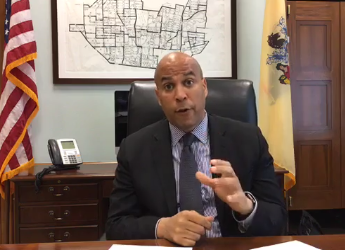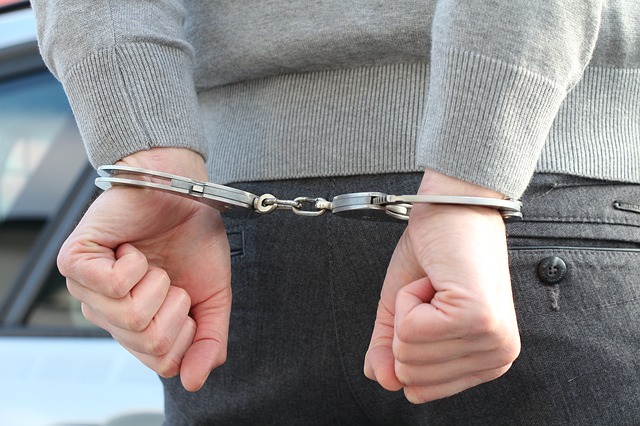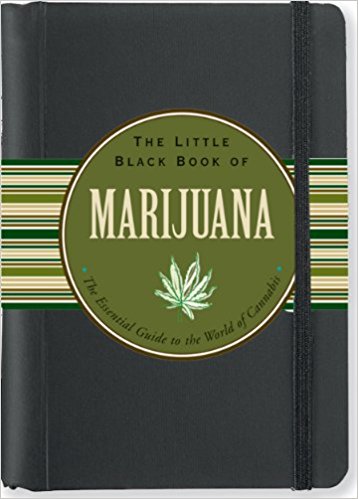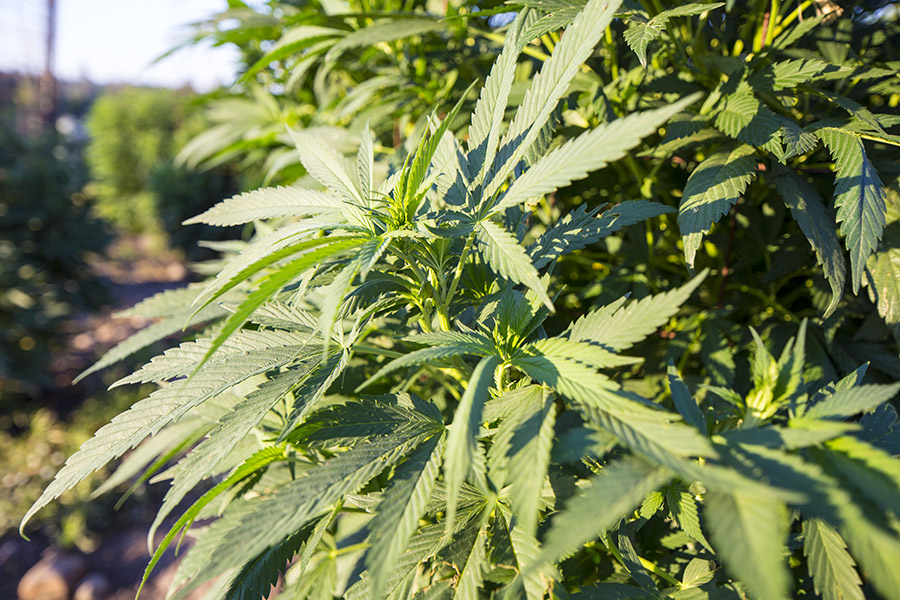
Is the so-called War on Drugs really a war against the poor?
Senator Cory Booker is making waves with his newly proposed Marijuana Justice Act and the reasons behind it.
Not only does he want the nation to benefit from increased tax revenues (to the tune of hundreds of millions in Colorado and California), but also as a solution to help curb opiate addiction.
It seems that hospitals in pot-legal states were shocked to find that not only was there no influx of patients suffering from “marijuana-related” issues, but their typical rates of opioid painkiller abuse decreased by 23 percent on average.
Senator Booker announced his plans for the Marijuana Justice Act on Facebook Live yesterday morning, and his video has already been shared amost 8000 times (don’t read the comments, unless you like getting angry and exasperated).
In the first minute, he quips that our justice system treats you better if you’re rich and guilty, than if you’re poor and innocent.
Booker explains that the poor, mentally ill, people of color, and veterans are disproportionately profiled and arrested for marijuana possession (a felony charge).
He goes on to describe the flippant, even joking manner in which well-respected professionals, even in politics, brag about their own marijuana usage.
Since they have a well-paying job, a nice home in a good part of town, and the ability to live a solidly upper-middle class life, they do not worry about being profiled; much less arrested for possession of marijuana.

However, a young person of color living in Section 8 housing is much more at risk of being charged for possession–because law enforcement aren’t looking at white-collar professionals driving BMWs when they look for illicit drug activity.
Possession of illegal substances is by far the most common conviction–88% of all arrests, to be exact.
When these drug possession charges are tallied up, most of them aren’t for lab-creation chemicals like cocaine, meth, or heroin–they’re for marijuana.
Since the 1980’s, American prisons have been swelling to unprecedented size in order to incarcerate these nonviolent felons. Sentences for a felony charge start at 3 years, and the fines, ranging from $1000 to $1 million, are insurmountable for the grand majority of these already-struggling individuals.
 Get The Little Black Book of Marijuana: The Essential Guide to the World of Cannabis here on Amazon!
Get The Little Black Book of Marijuana: The Essential Guide to the World of Cannabis here on Amazon!
Did you know that with a felony conviction on your record, even from 30+ years ago, you cannot apply for a business license, receive food stamps, or drive a taxi? In some states, a felony on your record means you can’t even vote.
According to current laws, there’s something like 40,000 negative socioeconomic impacts over a lifetime for someone who receives a felony charge, for any reason.
Booker’s position of legalizing marijuana stands in stark contrast to what the federal Attorney General, Jeff Sessions, thinks.
Sessions wants to challenge those states who have already moved to decriminalize marijuana. He has stated that “good people don’t smoke pot;” and that pot “is only slightly less awful” than heroin.
However, Sessions finds himself squarely in the minority of public opinion: 61% of Americans now support marijuana legalization.

Booker’s Marijuana Justice act would take this plant off the Schedule 1 list of criminalized substances. Substances on the Schedule 1 list are there because they “have no currently accepted medical treatment use in the United States”.
As many longtime patients whose lives have been transformed by the use of medical marijuana will tell you, there’s a grave case of mistaken identity going on here. Perhaps New Jersey Senator Cory Booker is one high-ranking government official who recognizes that.
I’m curious to see what kind of support his Marijuana Justice Act will inspire.



